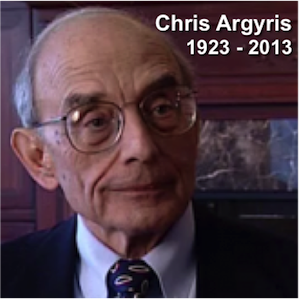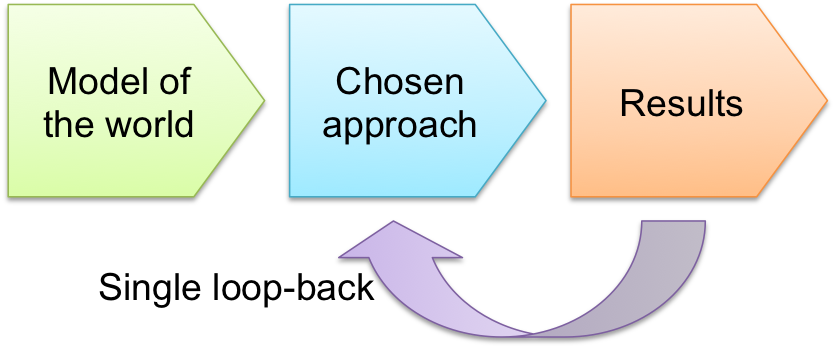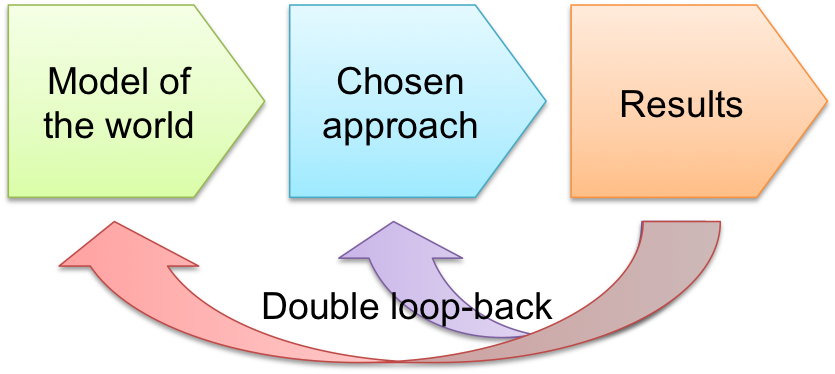Donald Schön (Schon for the rest of this article) differs from other thinkers and managers in this series, because he was more a philosopher than a business thinker. Therefore, his ideas are subtle, but no less important for managers and professionals to understand; at least in outline.
 Very Short Biography
Very Short Biography
Schon was born in 1930, in Boston and grew up nearby. In 1951, he gained his bachelor’s degree in philosophy from Yale and went to France to study music at the Sorbonne. He returned to the US to pursue philosophy at Harvard, where he earned his PhD in 1955.
After a short spell teaching philosophy at the University of California, Los Angeles and the University of Kansas City, he joined consulting firm Arthur D Little in 1957, and remained there until 1963 (AVGY).
From then on, he produced a series of books, joining the faculty of MIT in 1968 and becoming Ford Professor of Urban Studies and Education in 1972. It was in the years that followed this that he collaborated fruitfully with Chris Argyris.
Donald Schon’s Ideas
Within Schon’s writing are three big ideas that are especially relevant to managers and professionals.
The Learning Society
The rapid pace of technological change means that our systems and technologies no longer provide a stable base for society or its organisations. This means that we need to be constantly learning. This idea was picked up by Peter Senge in his writing on the ‘Learning Organization’. We need to be constantly learning lessons as we go and the same is true for society as a whole and organisations within it. Yet governments and organisations both like to centralise their policy making processes, isolating them from the people who have the experiences to understand and therefore solve the new problems that emerge.
Generative Metaphors
Schon wrote about how powerful a metaphor can be in framing the professional response to an issue. Schon suggested that the challenge is often less in problem-solving, and more in problem-setting. How we state a problem dictates the type of solution we find. So, for example, if the problem of poor communication is fragmentation, then we look for a solution of co-ordination. An example he gave from the social sphere was when we refer to the problems of a neighbourhood as a ‘blight’ and therefore frame our response as a treatment for disease. This is something that is the subject of current research, not least by Paul H Thibodeau and Lera Boroditsky. I have written about the dangers of metaphor choice elsewhere.
Reflection in Action
Perhaps Schon’s most important contribution was in thinking about the process of learning. In addition to his collaboration with Argyris – which led to three books and the idea of double loop learning; he also focused on reflection.
He started by setting out reasons why what he termed ‘technical rationality’ is a poor model of professional learning. This is the process of filling new students and professionals-to-be with knowledge at the start of their careers, and expecting them to apply that knowledge. The common response to this approach was then ‘reflection on action’. This is the process of stepping back after each piece of work, project, or experience, and reflecting on what we have learned from it.
We know that this is an excellent route to developing wisdom, but Schon argued that professionalism requires something else, as well: the ability to think o our feet. For this, we require the ability of ‘reflection in action’ – reflecting while we are carrying out our tasks and exercising our skills. This seems to me to be intimately linked with both Csikszentmihalyi’s idea of ‘flow states’ (in which we lose ourselves in activities where we are able to constantly monitor our progress) and Kolb’s idea of ‘Experiential Learning’ (in which we learn through a constant cycle of experience, reflection, generalisation, and application).



